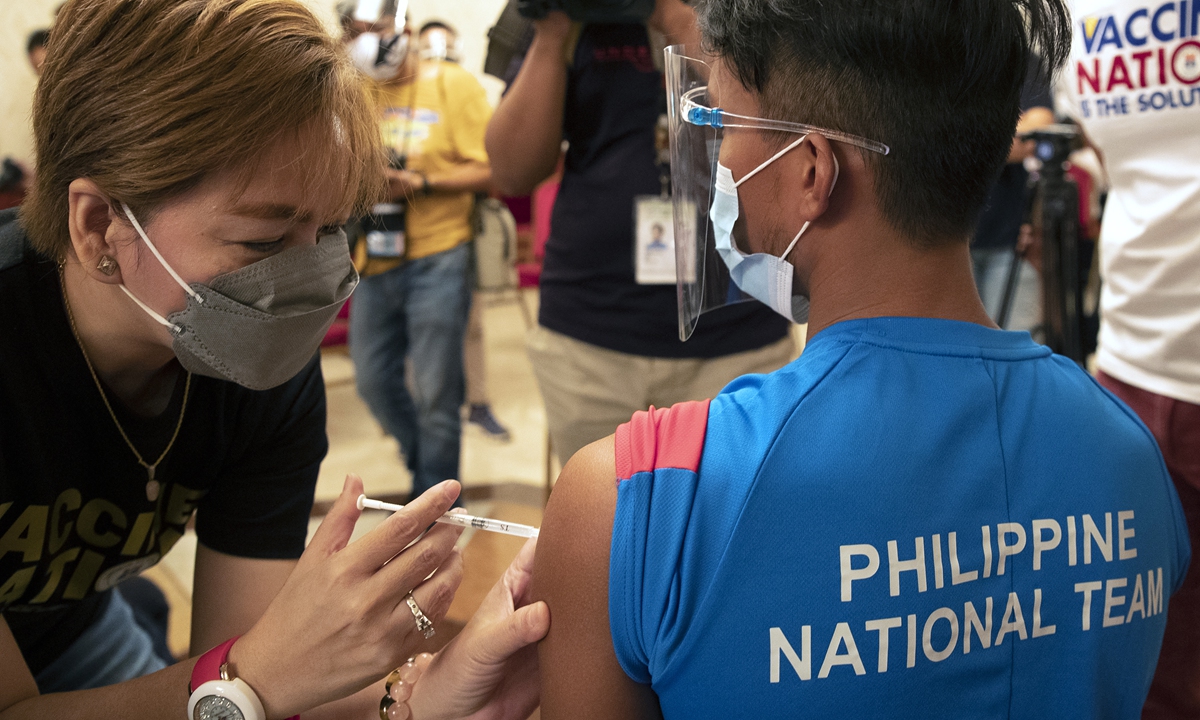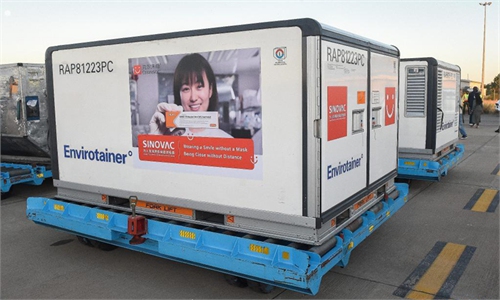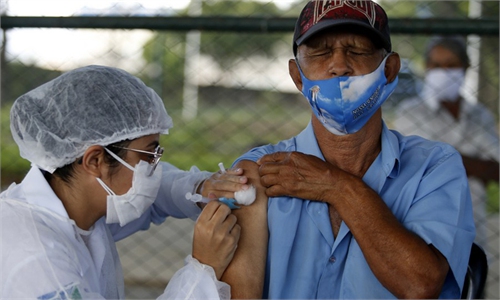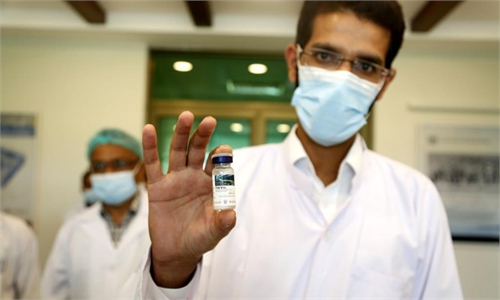Global bodies call for jab equality
Cash needed to aid developing world, control pandemic

An athlete is given a shot of China's Sinovac COVID-19 vaccine in Manila, Philippines. Several Filipino athletes and delegates were vaccinated on Friday in preparation for the Tokyo Olympics and Southeast Asian Games. Photo: VCG
World leaders must make a "new commitment" to a more equal distribution of coronavirus vaccines to bring the pandemic under control, the heads of four major global organizations said Tuesday.Their joint rallying cry, and calls for tens of billions of dollars more in funding, comes as concerns rise that vaccine inequality between wealthy and poor nations is further complicating and prolonging a pandemic that has already killed more than 3.5 million people globally.
In their appeal, the heads of the World Health Organization (WHO), World Bank, International Monetary Fund (IMF) and World Trade Organization blamed the gap in vaccination programs for the emergence of coronavirus variants that have fueled fresh outbreaks in the developing world.
"It has become abundantly clear that there will be no broad-based recovery from the COVID-19 pandemic without an end to the health crisis," they said in a joint oped in the Washington Post. "Access to vaccination is key to both."
They called on the Group of Seven wealthiest economies to agree on a "stepped-up coordinated strategy, backed by new financing, to vaccinate the world" at their next meeting in the UK later in June.
The leaders of the four organizations, speaking at a news conference Tuesday, also urged the G7 countries to fund a $50 billion plan already proposed by the IMF to help even out those inequities and accelerate the end of the pandemic.
The aim is to vaccinate at least 40 percent of the global population by the end of 2021, and at least 60 percent by the end of 2022, so as to enable a lasting economic recovery.
The cash injections "would help us dramatically scale up the production of diagnostics, treatments, oxygen, medical equipment and vaccines for equitable distribution," WHO chief Tedros Adhanom Ghebreyesus told reporters.
IMF chief Kristalina Georgieva stressed that the issue was not just about health.
"We are deeply concerned because an increasingly two-track pandemic is causing a two-track economic recovery - with negative consequences for all countries," she told reporters.
"Our data shows that, in the near term, vaccinating the world is the most effective way to boost global output... Vaccine policy is economic policy."
The investments requested were small in comparison to the massive returns, she insisted.
AFP



